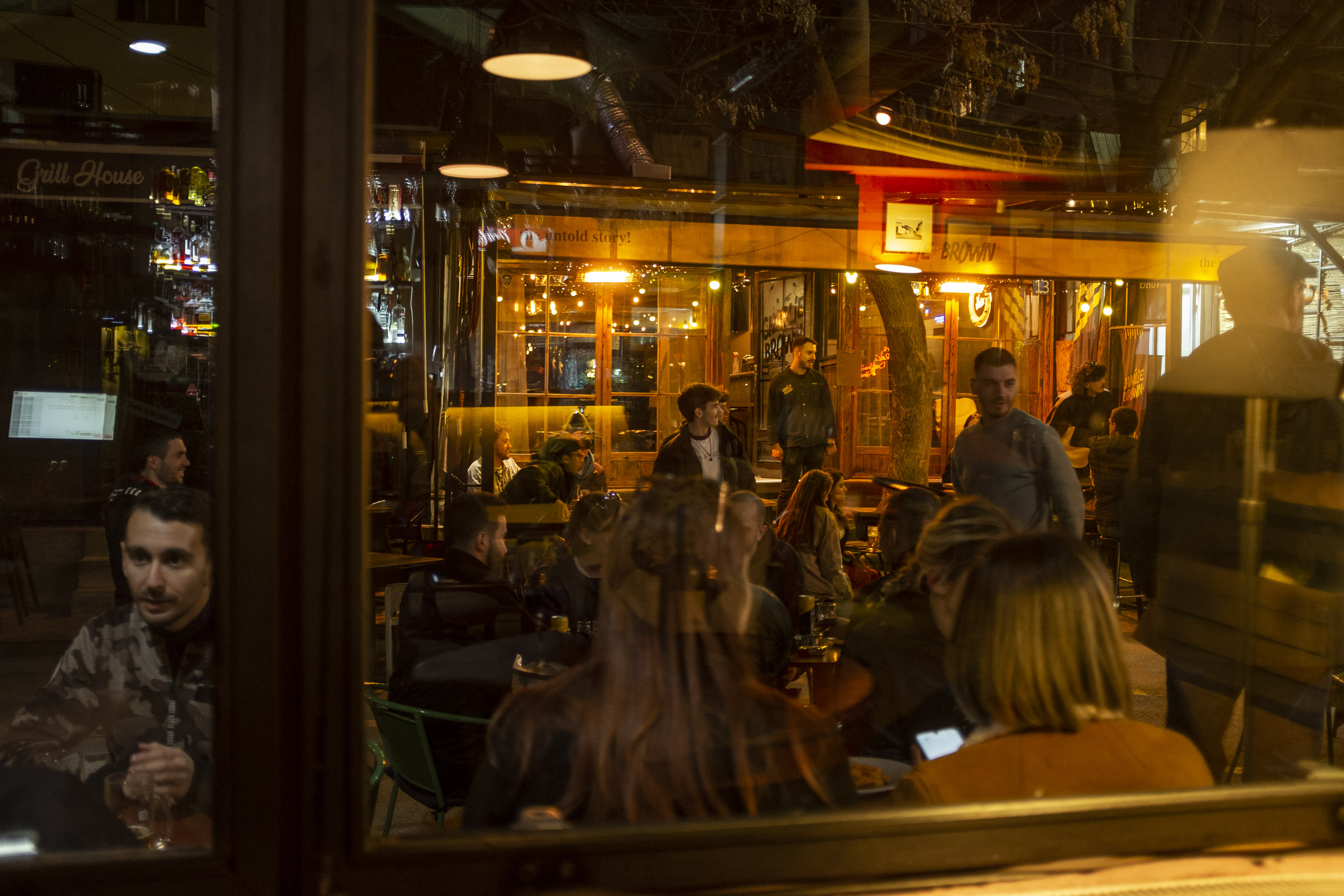
Who's serving us coffee?
Most young people who go out in Prishtina have at some point come across MIQT Pub. The spirit and humor of this bar, one of the few in the city modeled after an Irish pub, is encapsulated in a phrase that is written on one of the walls: “It isn’t easy for us either, to go out on Fridays.” On Wednesday, Friday and Saturday evenings, when the youth of Prishtina have an unwritten collective agreement to go out, the pub is a go-to spot for after-work beers.
MIQT started as an attempt among friends to create an alternative space in Prishtina’s nightlife. Now, after being open for a decade in three different locations, it has become one of the most prominent bars in the city.
MIQT rose to fame in its previous location, in a house that had been converted into a bar near the Swiss Diamond Hotel, where it was located for about four years.
In August 2019, the owners had to find a new location, and settled on a spot at “Kafet e vogla,” as the cafes on Fehmi Agani Street are known. After a number of municipal delays, the new location opened on March 23, 2020.
“We worked for seven months to refurbish the bar. We opened it, we worked for six hours and we closed it as a result of Covid restrictions,” said Petrit Reçica. Petlla, as Reçica is known, is one of the figures behind the bar and his reputation has grown alongside MIQT’s rising prominence.
At that time, the government decided to restrict the free movement of people and vehicles in order to prevent the spread of Covid and businesses faced similar measures. MIQT was one of many bars that closed. This lasted until the beginning of May 2020, when the government began to ease the measures.
The closure of cafes, bars and restaurants for two months left many businesses with no revenue and many people unemployed, which contributed to the weakening economy. The 190 million euro Emergency Fiscal Package was launched on March 30, 2020 in response to the situation. It extended tax deadlines for businesses and helped them pay half of their rent and to cover employees’ wages. These measures also pushed many businesses to register their employees, many of whom were previously unregistered.
Meanwhile, the pandemic restrictions gave many people a new perspective on their daily routine and their relationship to the cafes they frequent as “third spaces,” a term coined by urban sociologist Ray Oldenburg. Although going to a cafe is a routine action that happens all over the world, it is also an activity where important areas of life interconnect — from economics to culture. And for those who were forced to stay in isolation, cafes came to represent freedom.
Particularly in Kosovo, cafes are inseparable from the economic, social and cultural fabric of society. People use shorthand expressions for the neighborhoods and streets with a lot of nightlife. Not only is there the Kafet e vogla, but Kafet e rakisë, the street of many raki bars. Then there’s the Lesna, Cinema ABC, Santeja and Rruga B areas of Prishtina, which are defined by their cafes and integral to the mosaic of the city.
Furthermore, the bar and restaurant industry is one of the most organized sectors in the private sphere and it exerts influence at a policy level, an influence that was strengthened during the pandemic.
Efforts for a unified voice
As a 16–year–old, Reçica started working at a bar in Santeja at the end of 1999. The idea for MIQT Pub came many years later, when together with Dardan Ibrahimi-Dakin and another friend, they decided to open a place for themselves. Thus, the story of MIQT Pub began a decade ago at “Kafet e rakisë,” before moving to another bar in the center, and finally to Fehmi Agani Street and “Kafet e vogla.” In September, the pub will celebrate its tenth birthday.
Since December 2021, after the last local elections, Reçica has been a member of Prishtina’s Municipal Assembly, representing Lëvizja Vetëvendosje (VV). He says that one of the reasons he entered politics is to be able to directly influence decision-making on issues related to the bar and restaurant sector.
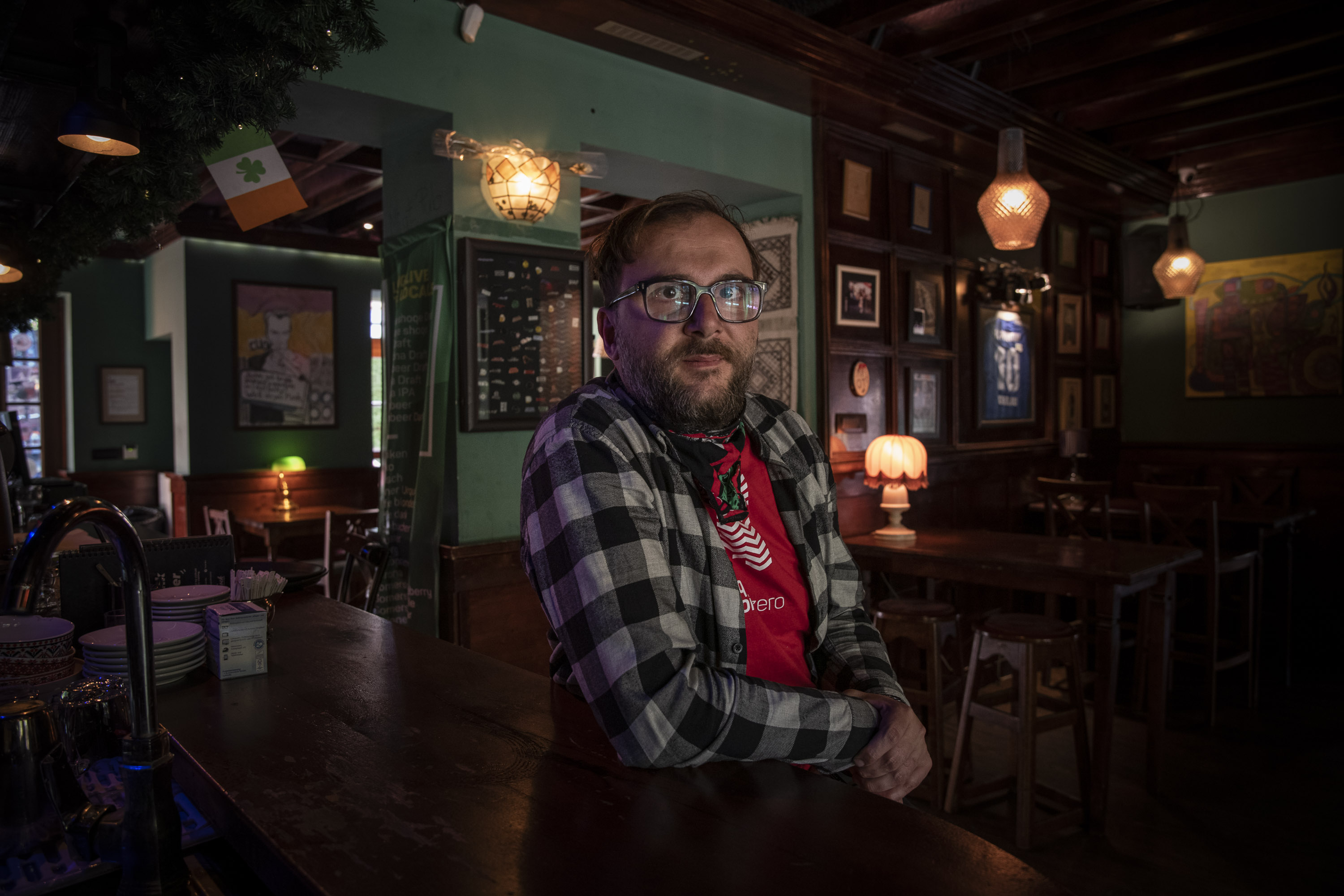
His entry into politics coincided with a broader trend of deepening connections between business and politics, either through business owners running for office or politicians owning businesses in the restaurant sector.
In 2021’s local elections, some of the largest political parties such as VV, the Democratic Party of Kosovo (PDK) and the Alliance for the Future of Kosovo (AAK) had candidates with a background in the bar and restaurant industry.
Uran Ismaili, PDK’s mayoral candidate in Prishtina, who came third in the election, co-owns two well-known businesses in Prishtina: Bon Vivant and Matisse.
Veton Zuka, co-owner of the well-known cafe Lips, was also a PDK candidate for the municipal assembly in Prishtina. Luaras Meha, owner of the bar Annex, also ran as an AAK candidate for the municipal assembly.
In addition to directly influencing local and central level politics by participating in legislation, these businesses increased their influence in policy-making by organizing internally. The Kosovo Gastronomy Association, which was established in 2012 within the Kosovo Chamber of Commerce (KCC) as the “Association of Gastronomes,” was founded to represent Prishtina’s bar and restaurant sector. In 2017, the organization changed its statute as part of a restructuring and became the Prishtina Gastronomes’ Association, which aims to protect the interests of local businesses.
In 2020, with pandemic restrictions affecting businesses across Kosovo, the association began speaking up for business owners, who soon began to join the organization. Consequently, in July of that year, the association expanded to a national level and was named the Kosovo Gastronomy Association.
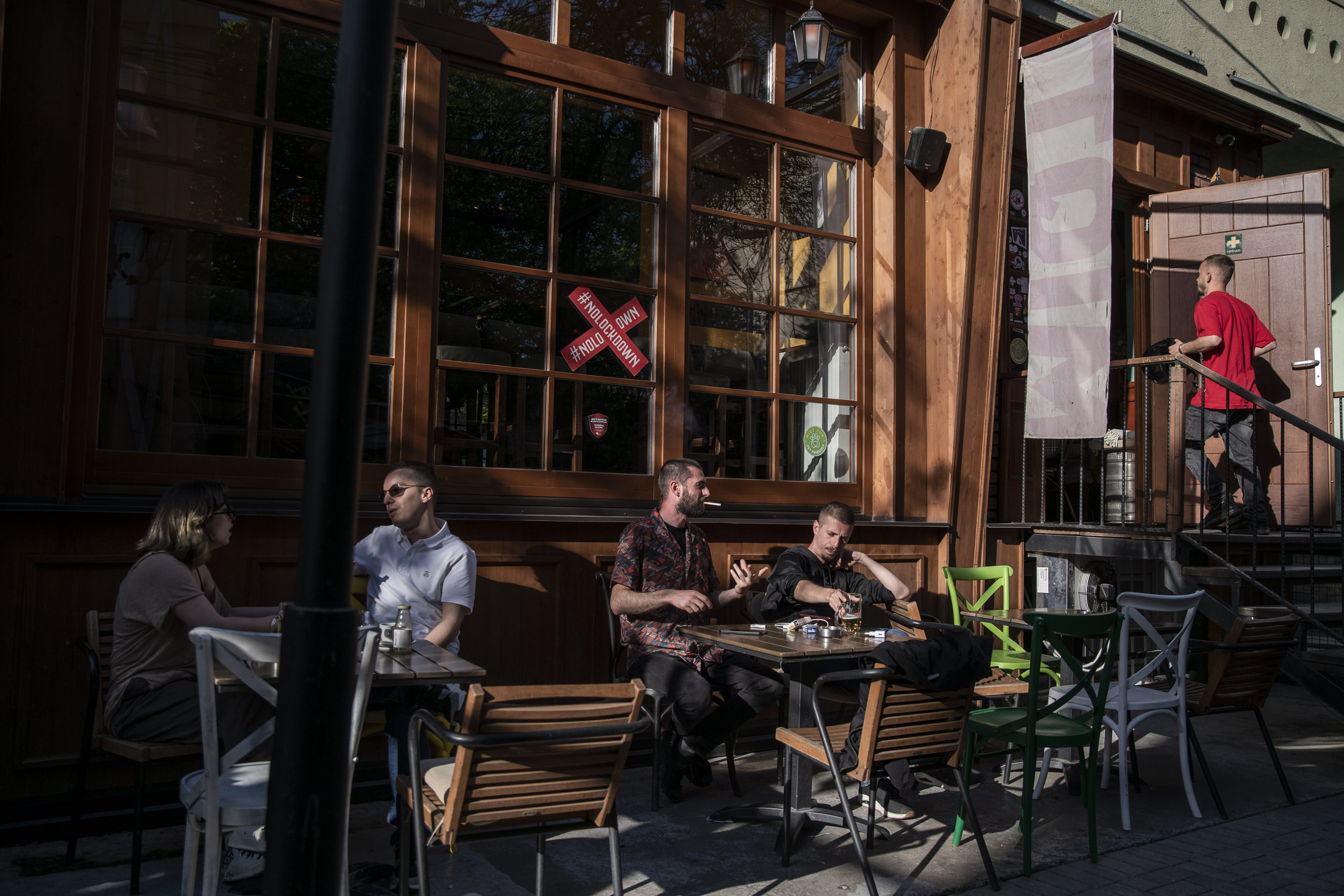
Membership increased significantly during this period. Most of the current 500 members joined after July 2020.
According to the association’s website, membership costs between 20 and 50 euros per month depending on which of the three packages members choose. The packages include legal support, information on activities and invitations to the annual fair at the association’s gala evening. Arian Vranica, general secretary of the association, said that the fees are voluntary and that the money raised is used for office rent, staff salaries and member training.
Throughout the pandemic, the Kosovo Gastronomy Association has had a significant influence on government decision-making regarding measures against Covid. Because bars and restaurants were seen as places where the virus could easily spread, Covid measures heavily restricted the activities of these businesses. Through participation in protests and an increased presence in public debate, members of the gastronomy association became some of the most outspoken voices during the pandemic.
Vranica says that the association has never been more powerful and that their influence on drafting measures by the government to control the pandemic has been significant. The Pandemic Management Committee, under the Ministry of Health, invited representatives of the association to frequent meetings before changing or imposing measures. However, their recommendations were not always taken into account, but without them “the measures would be even more severe for businesses,” Vranica said.
“Sports, gyms and fitness centers were affected considerably by these measures and it was very easy to close them because they were not represented by an organization, there was no one to speak up for them,” he said.
Despite this, throughout the pandemic, those in the bar and restaurant industry have repeatedly complained that the government’s measures against them were too harsh. Their main complaint was that working hours were constantly being reduced. As recently as early 2022 there were restrictions that allowed them to stay open only until 9 p.m.
MIQT Pub’s Reçica is part of this association. For him and other businesses that usually operate until close to midnight, this measure was hard to accept.
Those in the bar and restaurant industry were often at the center of criticism. Although there were rules put in place to prevent the spread of the pandemic, such as limiting the number of customers, wearing masks, presenting a negative test certificate and later a vaccination certificate, there were bars that did not follow these rules.
Despite these criticisms, restrictions and the fear of spreading Covid, people continued to gather in cafes, which illustrates the strong connection that people have with these spaces.
A sector that cannot be ignored
Cafes, as well as contributing to the economy, are important spaces for discussion and social mobilization. In fact, they have been described as a distinct “third space” where people gravitate during the day.
The American sociologist Ray Oldenburg, at the center of his “third space” theory, argues that in the two primary social environments — home and work — we are subject to a set of strict rules and expected to play a well-defined social role, but these spaces are not suitable for community development. For this reason, a third space is needed.
Arsim Canolli, anthropology professor at the University of Prishtina, wrote in a study “All they do is drink coffee: notes on café culture in Prishtina” that Prishtina is “a city of cafes [where] the culture of cafes is now fully integrated within the urban environment of the city, where politics, morals, ethics, identity and life in general are discussed.”
In Kosovo, it is a commonly held belief that people waste their time in cafes and that semi-public gathering spaces are only crowded because young people have nothing else to do. According to this argument, people choose cafes as the result of the absence of alternative public spaces. This is exacerbated by problems with the labor market. About 49% of people ages 15 to 24 are unemployed and the country’s underdeveloped economy is seen by some as a result of social and intellectual apathy.
Astrit Salihu, professor of philosophy at the University of Prishtina, rejects this argument, saying that the rapid development in the bar and restaurant industry has been a radical change at the “microsocial” level and important for the Kosovar economy and society after the war.
“It is interesting that the issue of the bar and restaurant industry has only been highlighted during the pandemic, because they are not only businesses, they broaden people’s horizons, there is also an educational and cultural aspect,” said Salihu, adding that young people in Kosovo have enough cultural and educational space. According to him, the idea that people have nothing to do and so stay at the cafe does not hold up.
He attributes the large number of busy cafes in Kosovo to the service-oriented economy and young population. In addition to being places where young people find a “third space,” they often also find their first job there.
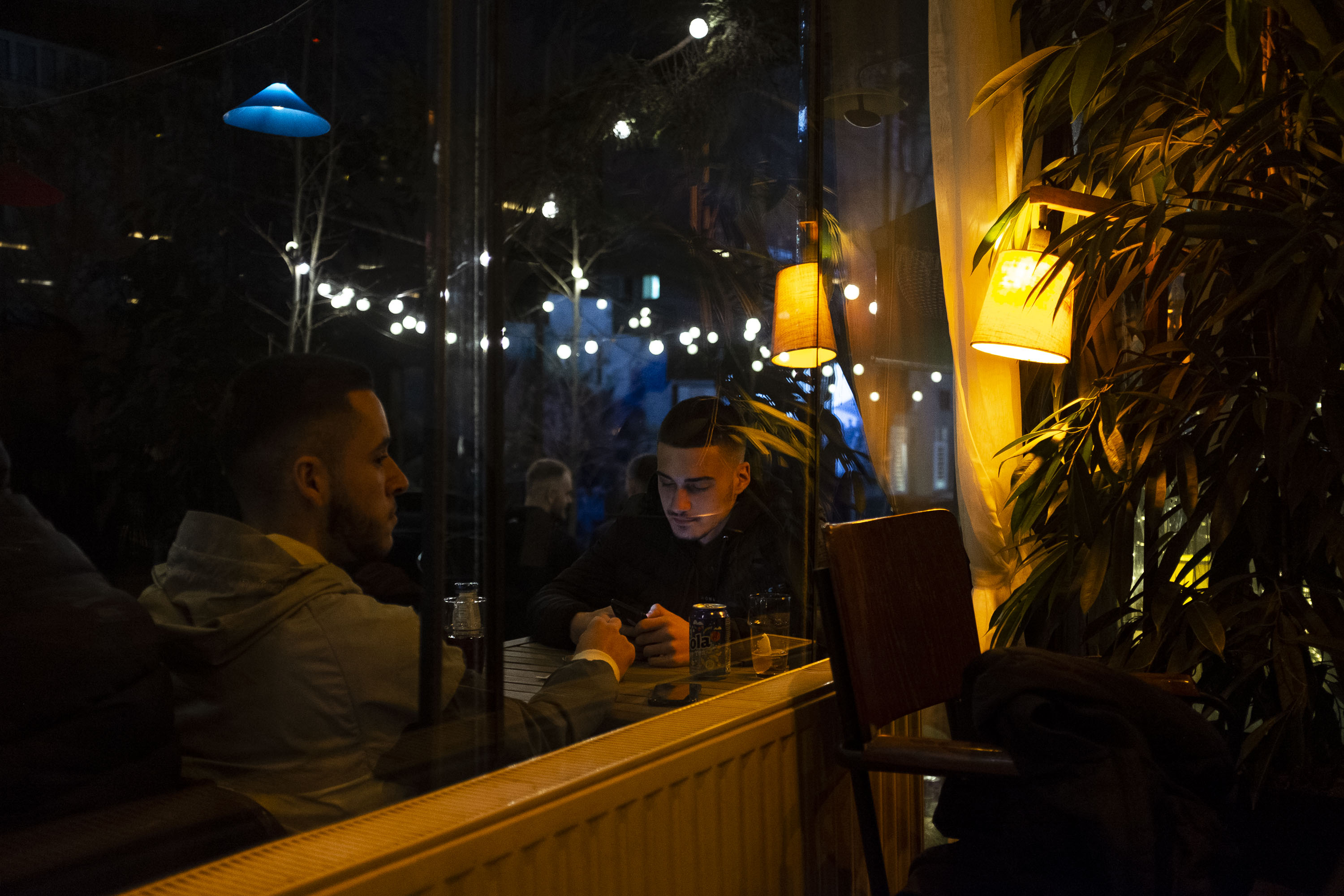
As one of the main employers, the bar and restaurant sector is one of the most important sectors for Kosovo’s economy. Data from various sources for 2021 say that the sector totals about 6,200 businesses, though there were roughly 8,000 registered before the pandemic. According to data that the Tax Administration of Kosovo (TAK) sent to K2.0, the sector contributed over 11 million euros in taxes in 2019. This was halved in 2020, and in 2021 the amount was 7 million.
Meanwhile, according to the Kosovo Agency of Statistics (KAS), the number of registered workers in the sector before the pandemic was about 14,000. With the registration of a number of workers during the pandemic due to financial assistance measures from the government, the number of registered workers increased by 1,500, to 15,500.
But the lack of data due to a high level of informality in the sector means these official numbers may not reflect actual revenues and employment numbers for bars and restaurants.
According to a report published by the Institute for Free Market Economy (IFME), which operates within KCC, the pandemic caused great harm to restaurant workers because businesses were forced to close. Out of 192 businesses surveyed, 67.8% of them stated that their monthly revenue during full closure had decreased by 100% compared to the same period last year. Moreover, about 53% of businesses surveyed were forced to lay off all employees.
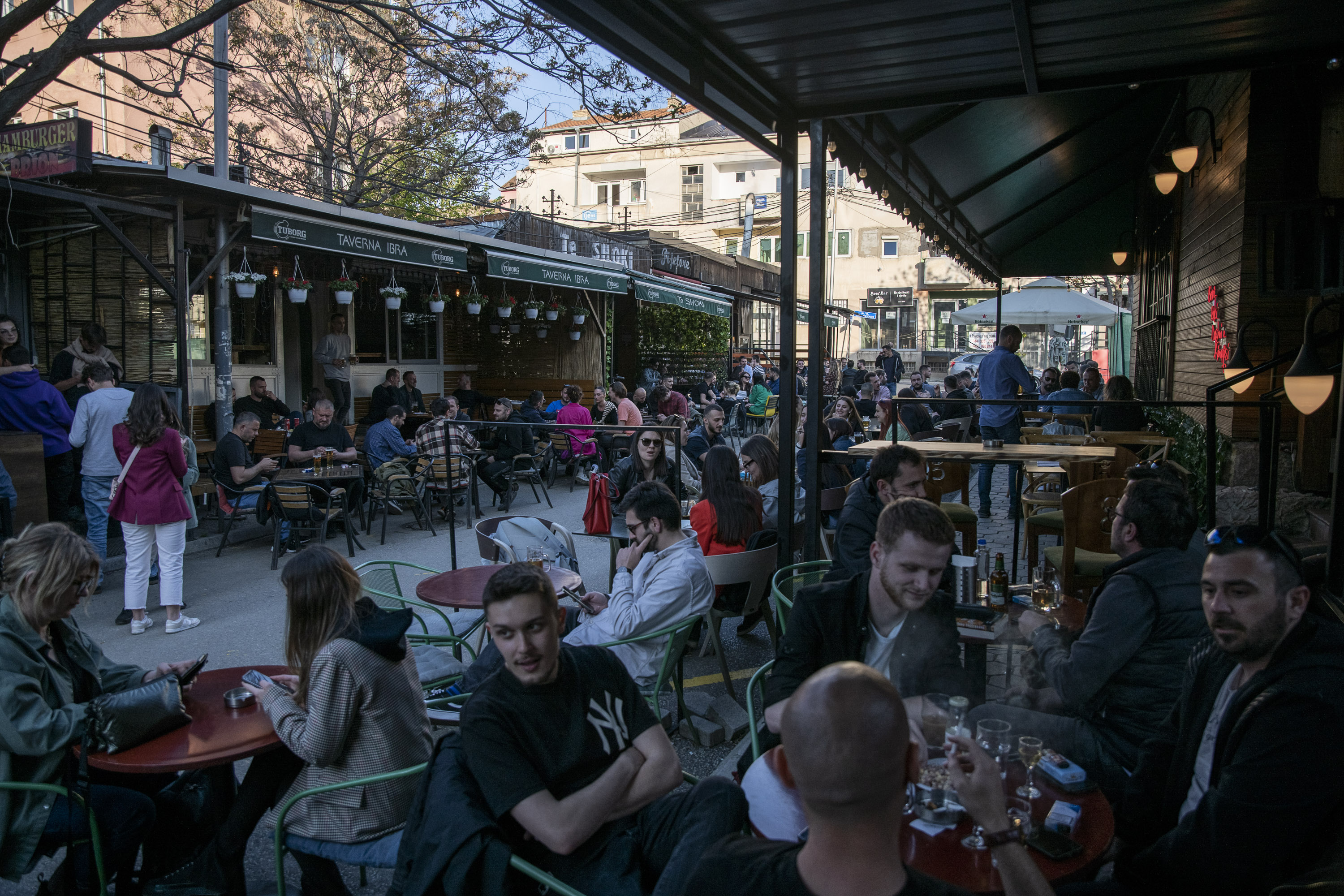
Economics Professor Ermal Lubishtani says that the bar and restaurant sector promotes economic growth, especially during the summer months when the diaspora visits Kosovo. This has a knock-on effect for other businesses and the economy as a whole.
The bar and restaurant sector’s importance for the economy was highlighted when pandemic measures were eased to allow thousands of members of the diaspora to visit Kosovo. This happened when the new variants of the virus, Delta and Omicron, were spreading all over the world. According to the latest data from the Central Bank of Kosovo, in addition to remittances, the diaspora’s contribution to the economy during the summer 2021 in direct expenditures alone was 360 million euros.
“In terms of revenue it is a very large sector, as well as in terms of employment, and the biggest role is the effect it has on other industries,” he said. Bars and restaurants have important economic ties with a number of other businesses, particularly those that supply goods and services.
But the sector is also characterized by a high level of informality — where a large number of restaurants do not pay taxes, do not offer contracts for workers to avoid paying their contributions, as well as a low level of legal regulation.
According to the Gastronomes’ Association, more than 30% of employees in bars, cafes and restaurants in Prishtina are students. During the pandemic, when universities and other higher education institutions in Prishtina were closed and classes were online, businesses had trouble securing employees because students who didn’t need to attend classes left their jobs and returned home, often to other cities.
The secretary of the association, Vranica, says that these students are generally not interested in formal employment, but their priority is to generate a fast income in order to cover the cost of studying. Meanwhile, students, who mainly come from other regions of Kosovo to study in Prishtina, often find jobs in the service industry and are often unaware of the importance of formalizing employment.
“Students use the bar and restaurant industry as a good way to finance their studies and they have no problem with their employment not being formalized at this stage of life; for them it is more important to have immediate income and to finance their studies than to think about their retirement,” said economist Lubishtani.
However, Lubishani is critical of the high level of informality and the lack of adequate measures to improve the situation.
“Estimates are that only 30% of bar and restaurant employees are registered,” he said, adding that both conventional and creative measures could reduce this informality. According to him, some of these measures could include fines and sanctions for violations and financial incentives targeting workers and businesses, or even awareness campaigns to explain to employees the importance of formalization.
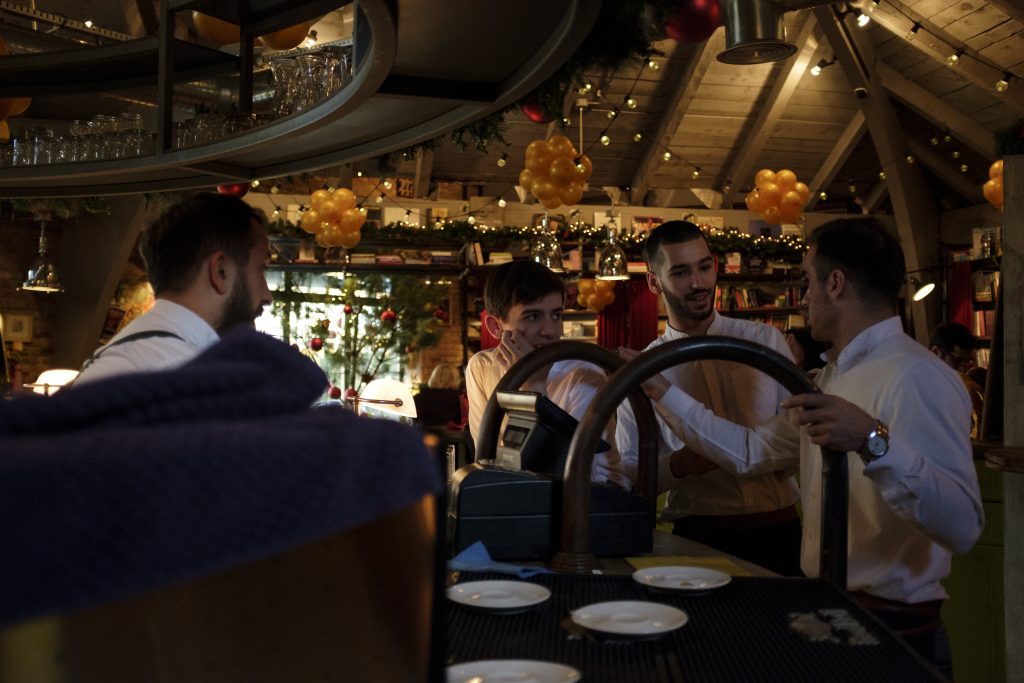
The interests of private sector workers in Kosovo have never been suitably represented; they continue to have difficulty consolidating a common voice that properly addresses their problems, while the Kosovo Gastronomy Association does not prioritize protecting employees’ interests.
The President of the Trade Union of the Private Sector, Jusuf Azemi, sees the bar and restaurant sector, together with construction, as the most problematic in terms of compliance with labor laws and especially with regards to providing contracts.
He says the pandemic has raised awareness among employees to take contracts and the obligations arising from them more seriously, such as the declaration and payment of contributions by employers, which was highlighted by the various mitigation measures taken by the government during this time.
“There are cases when employees have worked for years in an establishment and with the decision [of the previous government] to allow for the withdrawal of 10% from personal pension funds, many realized that their employer had not paid enough in contributions,” said Azemi. Nevertheless registration and formalization of work remains low.
The Labor Inspectorate, which is tasked with overseeing the implementation of around 10 laws relating to safety in the workplace, currently has only 35 field inspectors. They are responsible for inspecting 75,000 private and public entities across the country. If each inspector visited one entity per day, it would take more than five years to inspect every business and public entity. To have a comprehensive view of the situation, the Labor Inspectorate needs to at least double the number of inspectors.
Acting Chief Inspector Agim Millaku says the lack of an effective union of private sector workers makes the work of the Labor Inspectorate very difficult. According to him, due to a lack of knowledge, a fear of losing their job and a resistance to formalization, employees fail to communicate with the inspectorate to report violations of rights by employers.
“We are interested in this because it would be good to have a focus point. Now we have started to cooperate closer with the private sector union, but there is a lot of room for improvement and to have a better organization,” he said, adding that the private sector union should be a point of contact for potential violations of workers’ rights before they reach the Inspectorates. In this way, according to him, the work of the inspectorate would become more effective and the union would be able to consistently protect their rights.
More than just a coffee house
What are the roots of Prishtina’s cafe culture?
Anthropologist Arsim Canolli writes that before the break-up of Yugoslavia began, 1980s Prishtina was a cultural center for Albanians in the former Yugoslavia. It was a lively town with a korzo culture (in which people came out nightly for semi-formalized promenades through town), where you could see the ballet, cinema, music and dance. The city center was filled with spaces referred to as kafiqa, which comes from the Serbo-Croatian word for cafe.
At the end of that decade, after the Milošević regime abolished Kosovo’s autonomy in 1989, Prishtina became a place of peaceful resistance to the occupying regime. This was a period characterized by the establishment of various parallel systems of institutional life by the Albanian population. Simultaneously, many people, especially young people, were leaving Kosovo.
Because of this situation, cafes became invaluable sanctuaries for the capital’s cultural and political life.
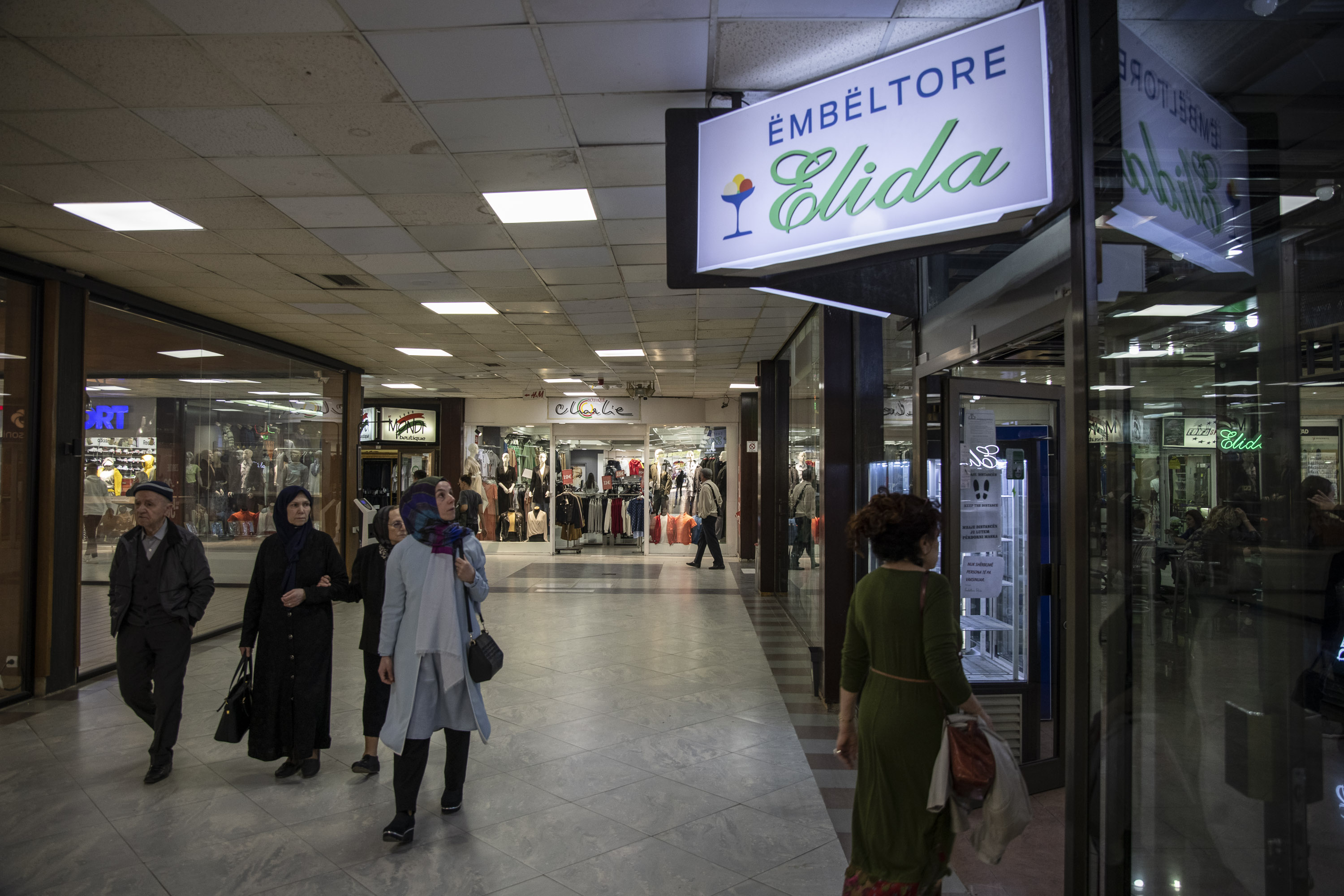
Located among the many bars at the Palace of Youth, now like a hidden gem, but once a symbol of civil resistance is Elida, a cafe serving desserts and sweets. Opened in 1978 as “Boro e Ramizi,” Elida served as an alternative space and meeting point for people organizing against the Serbian regime.
By many it was known as an information and coordination center and served as a meeting place for politicians, writers and artists. It was where decisions, demonstrations and reactions were planned. Political parties formed there and newspapers such as Koha were launched. The Democratic League of Kosovo (LDK), whose president Ibrahim Rugova went there regularly with other well-known figures, was founded there. Although there have been renovations over the years, it looks the same as it did in 1978. Since 2017 it has been listed as a cultural heritage site under temporary protection.
“It was a natural organization that developed after the blockade when Albanians did not have access to institutions and had to create an alternative space of existence, where they could meet their spiritual and cultural needs,” said the philosophy professor Salihu. Cafes were used as alternative spaces, such as “Hani i 2 Robertëve,” which in the 1990s served as a meeting place for ideas. It was not just a restaurant, but a cultural institution in itself.
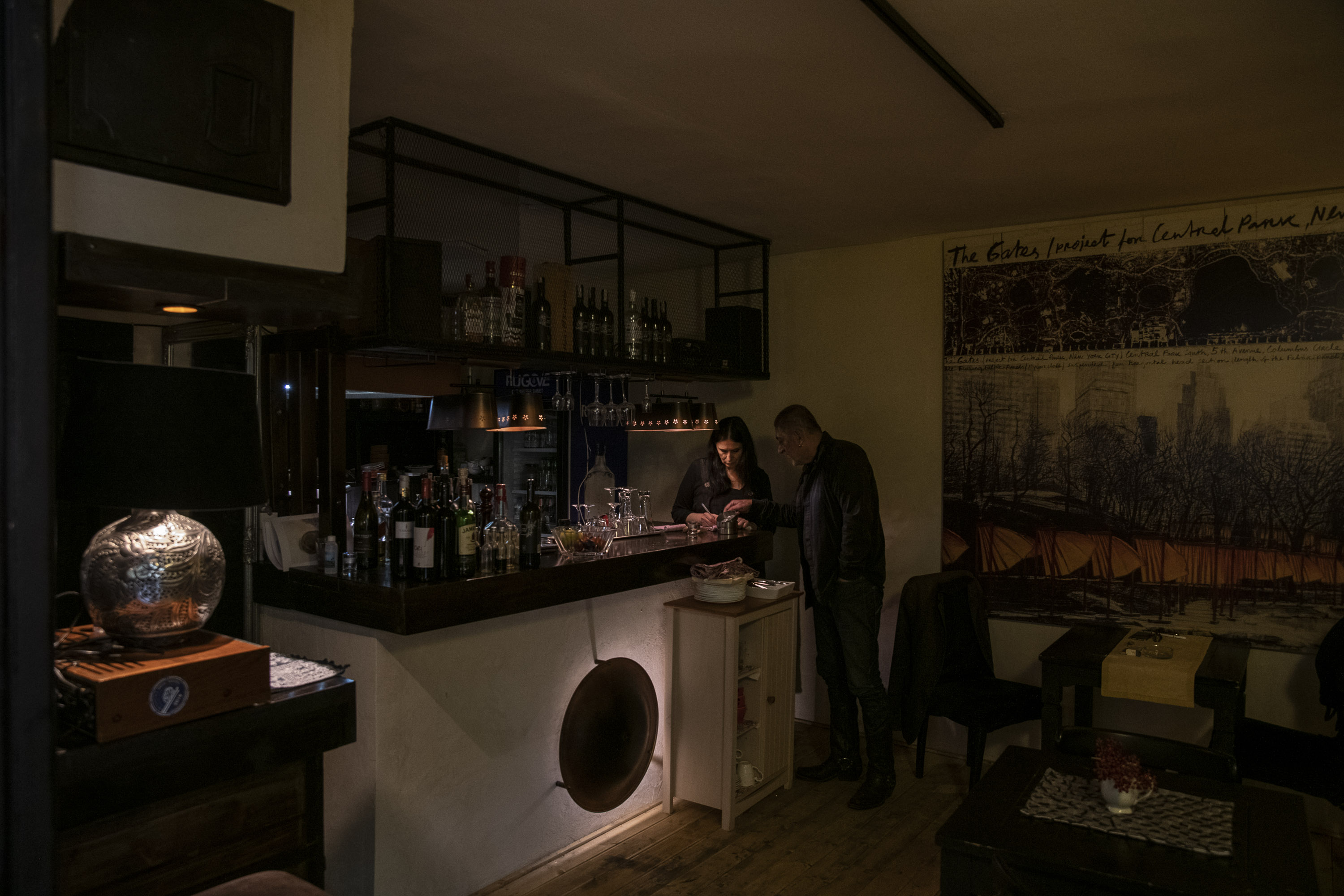
Over decades of existence, Hani i 2 Robertëve found itself in various locations in Prishtina, mainly in basements, near tunnels and hidden places, says owner Fadil Dragaj, who together with his wife, Merita, built one of the cafes that has found a permanent spot in the collective memory of many generations of Prishtina residents.
But, the story of Hani të 2 Robertëve begins later, when Dragaj changed locations from Kurrizi to Santeja, both in the Dardania neighborhood, which had become a center of Albanian social life. There, they participated in concerts, parties and cultivated a cultural scene.
At that time, Hani became the center of the capital’s cultural activities. It was trying to replace institutions that were forbidden to Albanians. In terms of the character of the bar space over time, Hani was a cultural and political space. It was the main center for international journalists before and during the war. Then, a diplomatic center for international politicians who wanted to get to know underground Prishtina and continued to hold meetings there after the end of war.
But today, Hani is just one of the many bars that occupy the streets of Prishtina. Mainly frequented by loyal customers, Hani remains to this day in a bar near the cafes in Santeja.
And over the last two decades, the relationship between cafes and politics has changed shape. This was evident during the 2021 local elections, where in the list of candidates for each major party, there was at least one cafe owner. Beyond the voter lists, there is an unwritten identification of cafes with different parties, either because of clientele or ownership.
“Dit ‘e Nat’,” located in an alley near the main government building in the center of Prishtina, for many years has been an important space for discussions and youth culture.
The opening of Dit’ e Nat’ in 2009 coincided with when VV was increasing its political activity. The co-owner, Genc Salihu, a prominent urban artist from Prishtina, remembers that in the first four or five years of its life, Dit’ e Nat’ had become a nest for VV activists, who held discussions on political philosophy there and screened films. Salihu and Kaltrina Krasniqi, his partner with whom he manages the bar, later decided to stop showing films so as to avoid political affiliation and, as Salihu said, “to diversify [the bar] ideologically.”
Years later, in 2010, Fryma e Re (FER) emerged on the political scene, another small party that introduced names that would later become important in Kosovar politics, including Shpend Ahmeti, the former mayor of Prishtina for two terms and a high profile member of VV for several years. Salihu says that FER also took its first steps in Dit’ e Nat’.
Meanwhile, with the advent of widely available technology and social networking, he thinks cafes have begun to lose their ability to gather people and facilitate discussions, indicating an end to the era when political alternatives were formed in cafes.
“Social networks have taken away only a few elements from cafes, but they have taken away the key elements, such as the element of mobilization, you have it completely on social media, it is much more efficient there,” he said.
In this context, Salihu thinks that the character of the cafes of the 1990s had similarities to the post-war years until the rapid development of the internet, which, according to him, has brought about changes and now cafes are used more as a daily ritual.
“In the 1990s, the only thing we owned were the bars and cafes, we had nothing else,” said Salihu. “Still, even after the war, there were cafes where the most progressive developments took place — little had changed in this respect. Now the situation has changed entirely.”
Although cafes are remembered as places where progress has taken place, in some respects they are still tied up in tradition.
Still a man’s world
Fehmi Agani Street, known as “Kafet e vogla,” today is full of cafes and restaurants on both sides. Was named after the first cafe that was located there, “Kafja e vogël,” which attracted more and more cafes to be built. Immediately behind Kafet e vogla, is Tartine Deli, a cafe that brought innovation to Kosovar cuisine and consistently employed only women, opened seven years ago.
When Adelina Sokoli and Gresa Bakalli opened Tartine, one of their aims was to break down barriers for women in the industry. As with all other fields, the bar and restaurant sector in Kosovo is dominated by men. Women’s access to employment in the sector as well as to business ownership continues to be negligible.
Prejudices about women running businesses, said Sokoli and Bakalli, have been a consistent challenge.
“In the beginning we were told that men must be behind us, and the tradesmen that we called, never came on time or they tried to scam us, or they asked us ‘where are your men?'” said Sokoli.
According to Linda Gusia, professor of sociology at the University of Prishtina, there is a patriarchal division with regards to cooking and serving food in different spaces. Food at home –– in private spaces –– is always cooked by women, while in restaurants and spaces outside the house –– public spaces –– it is prepared mainly by men. Women are supposed to stay within the walls of the house while the public sphere is still dominated by men.
The unequal division of public space between the genders, as Gusia describes it, is also reflected in the ownership of businesses in the bar and restaurant sector, where the vast majority of owners are men. A limited increase in the number of women who own such businesses has only taken place recently. The latest data from KAS show that out of about 3,000 businesses opened during the first three months of 2022, only 22% are owned by women. Meanwhile, 2019 data showed that women owned only 11% of all active businesses at the time.
This situation prevails in Prishtina, where the majority of waiters continue to be men, while women are less often employed by or owners of such businesses — symptomatic of the gendered realities of economic power and authority in society.
“Until a few years ago, it was almost inconceivable for women to serve in restaurants. Women serve at home, all day, but in the restaurant it was considered an indecent profession. Whoever controls the public in general, also controls the restaurant sector,” said Gusia.
Traditionally, Gusia says, women in Kosovo have been within the walls that have defined their private sphere of action. With large traditional families where “the hearth has been the home,” the idea of cooking is seen as centered around home and family.
“Cooking has historically been important in terms of humanity and the development of human societies, and women have been the ones who have cooked and engaged in cooking and preparation, who have gathered and cultivated in the gardens,” said Gusia. “Cooking is taken for granted, It is invisible, unpaid and unknown.”
In a well-known alley in Prishtina’s center, the bar “Te Martini” stands proudly. Since before the war, mainly men have gathered here. But in the last decade especially, new bars began to open on this street and it became known as “Kafet e Rakisë.” The opening of these bars has changed its demographics, both in terms of customers and owners. Today, this street is one of the few places where you can find old and young in one place.
One of the bars opened on this street is “Pijetore,” the only one opened and managed by a woman. Pijetore, whose co-owner is Lindita Azemi, has become one of the spaces that personify the spirit of “Kafet e Rakisë,” the rebellious alley next to the smug central square of Prishtina.
Pijetore, like Tartine, is not in the Gastronomy Association and Lindita knows very little about it.
Sokoli and Bakalli from Tartine participated in one of the meetings in July 2020 when the association was holding meetings all over Prishtina with owners of cafes that could potentially join.
“We raised the issue of our alley being better maintained, with lighting, but [the association’s] interest has been towards the road. We are behind and they don’t care about the part behind their bars,” said Adelina.
Their request was ignored by the association and for them, their interests differ from those of the association. Both Sokoli and Bakalli didn’t attend any other meetings nor did they join the association.
A new struggle
The pandemic was one of the most difficult times for the sector. These difficulties continue today with the crisis of rising prices caused by disruptions in the global supply market because of the pandemic and now the war in Ukraine. In April 2021 prices began to rise and inflation reached a rate of 11% in April this year. Meanwhile, wages in the public and private sectors have remained the same as before the inflation crisis. This means that customers have less money to spend in cafes, and business owners have less money to run their businesses.
These successive crises made Salihu of Dit’ e Nat’ think that his business would not be able to survive.
“Now is an uncertain time and in uncertain times people behave differently, which for Kosovo’s gastronomy sector is challenging. Changes in social dynamics were not noticed during the pandemic because then the circumstances were changed temporarily. And now the impact is being felt,” he said.
Measures to fight the virus brought a new reality in which cafes could not adapt to the government’s measures, and the crisis of rising prices has put cafes and consumers in a difficult position.
“It is more difficult to work now than in the middle of a pandemic. People are financially empty, they are broke and absolutely we have noticed it. The choices they make are more limited, the purchases they make are much more economical,” Salihu said.
After two years lost to the pandemic, MIQT Pub has only recovered in recent weeks, while Reçica also notices changes in the way people approach the bars, compared to “virus-free” life.
“Because of the pandemic people have learned not to go out,” he said. “The number of people who only go out for a short drink after work has increased, because the pandemic trained them like that, when we had to close the bar early. But now there are some people who don’t go out at all.”
Even according to Lubishani, the main challenge is the ever-increasing prices that could cause a decrease in people going out to bars and cafes.
“I believe that the low prices of basic products, such as coffee, made it so cafes were full of people and able to make a profit. Now prices have started to rise and my observation is that it will be more difficult to maintain the habit of going out for coffee as before,” he said.
The pandemic and high inflation rates have made businesses think twice about investing in the bar and restaurant industry while reducing choices available to consumers.
Despite successive crises, this sector continues to be a central part of Prishtina’s spirit. They are oases of social organization, often students’ first job and a source of income and opportunity for owners that brings something fresh to the city. They are an important source of revenue for the state budget, a challenge for labor inspectors to enforce registration, and for women, a place where they are still breaking down gender barriers.
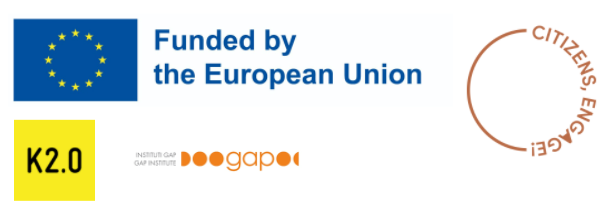
This publication was published with the financial support of the European Union as part of the project “Citizens Engage”, implemented by K2.0 in partnership with GAP Institute. Its contents are the sole responsibility of Kosovo 2.0 and GAP Institute and do not necessarily reflect the views of the European Union.
Why do I see this disclaimer?
